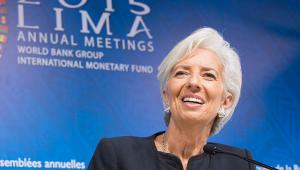As we approach the two-week anniversary of the UK's EU referendum, I hope the following is a useful summary of where we appear to be from CIPFA's perspective, with thoughts for the finance profession on our next steps. This is shared as a matter of briefing and interest as part of our ongoing work to explain events.
CIPFA, as a professional body and charity, maintains political neutrality, but speaks for professionals and leaders in the public sector highlighting insights on the economic, fiscal and political circumstances affecting their delivery of services.
CIPFA’s UK members have reflected that nearly all the main UK-wide political parties have announced they respect the verdict of the electorate. The Liberal Democrats have said they will continue to campaign for the UK to belong to the EU, whilst the first minister of Scotland and the majority SNP Scottish government wishes Scotland to remain in the EU. Our assessment is that the UK is set to exit the EU and the question mark about the future of the Union is set to remain.
Several Conservative elder statesmen, for example former deputy prime minister Lord Heseltine, have questioned whether the (constitutionally) advisory referendum is deliverable in the terms generally advocated by Vote Leave. Whilst stressing parliamentary sovereignty on this matter he has therefore speculated that a second referendum or general election may be required to sanction the ultimate steps taken, especially if the public mood changes as the economic impacts become more clear. However, we note that the Fixed-term Parliaments Act would make the latter unlikely and all candidates for the position of prime minister have advocated the government running its full term to May 2020.
Constitutional questions also need clarification on whether the new prime minister may initiate Article 50 to give notice of leaving the EU under royal prerogative, as implicitly suggested by David Cameron, or Parliament would need to vote on this. Ultimately, Parliament will repeal the Acts that took the UK into the EU and pass UK laws to replace those presently in EU jurisdiction. Significant scrutiny is likely, given that most MPs and peers supported remaining in the EU during the referendum campaign whilst now intending to act on the public's instruction.
CIPFA is deeply concerned, as are all leading politicians from across the mainstream political spectrum, that since the referendum licence has been taken by racist elements in society to target both EU and non-EU members of our community. We fully support the #LoveOurEuStaff campaign in the National Health Service as our public services often rely on the contributions made by valued overseas citizens. With over 50,000 vacancies in our health service, for example, we cannot easily function without the 50,000 EU staff already employed. We must cherish our long traditions as a successful multi-cultural and tolerant society, which sees London, for example, as a global city.
We note that chancellor George Osborne has already announced the government’s easing of its intention to deliver a fiscal surplus of 0.5% of GDP by 2020; and that policy has shifted toward reflationary measures following the assumption that the economic cycle will produce an earlier downturn than previously modelled. The government will borrow therefore rather than implement further cuts to those already signalled in the run up 2020. The turnaround in policy so soon is a concern as public services ultimately rely on strong economic performance to fund them.
The Brexit debate has highlighted deep divisions in our society, particularly on issues such as immigration, affordable housing and responsible taxation. Government policy is therefore likely to be dominated by these concerns while even more capacity will be devoted to the massive task of negotiations to leave the EU and post-EU trade arrangements.
Over the next months, the terms on which the UK wishes to negotiate, not least the relationship between the single market and free movement, will be assessed by the new civil service team established in the Cabinet Office to give options to the new prime minister's administration. Other significant areas that require pragmatic solutions will include how the longstanding common travel area with the Republic of Ireland – important to both trade and peace – is affected; and the role of the City of London in EU financial services markets, where the majority of Euro derivatives trading takes place.
In conclusion, the UK has a long democratic tradition of institutional stability and robust systems of policymaking and delivery. Clearly these will be tested for several years ahead to deal not only with the referendum verdict but the insight it has given into longer standing and deeper divisions and concerns in UK society.
Similarly, that much of Europe and the world feels let down by the UK needs as much constructive discussion within our country as the debate that large sections of the UK population clearly feel let down by the EU. In CIPFA's view it is better to discuss and resolve the evident tensions within and outwith the UK in as mature and constructive way as possible.
CIPFA calls on all politicians and institutions to ensure the next phase of public debate and the ensuing mechanics of withdrawal are based on facts and well constructed analysis and advice that was sadly lacking in much of the discourse of the referendum campaigns. Accountants and leaders across our public services will do all they can in the public interest to engender and support high quality information, debate and transparency.
And on this we will always continue to promote international standards, sharing good practice and collaboration with colleague accountancy bodies and groups. In an uncertain world with fast changing contexts and multiple events, we believe partnerships afford great utility and the best-continued opportunity for success.
I hope that the above is useful and as ever I would like to stress that CIPFA is keen to support its members and partners to analyse events.





















